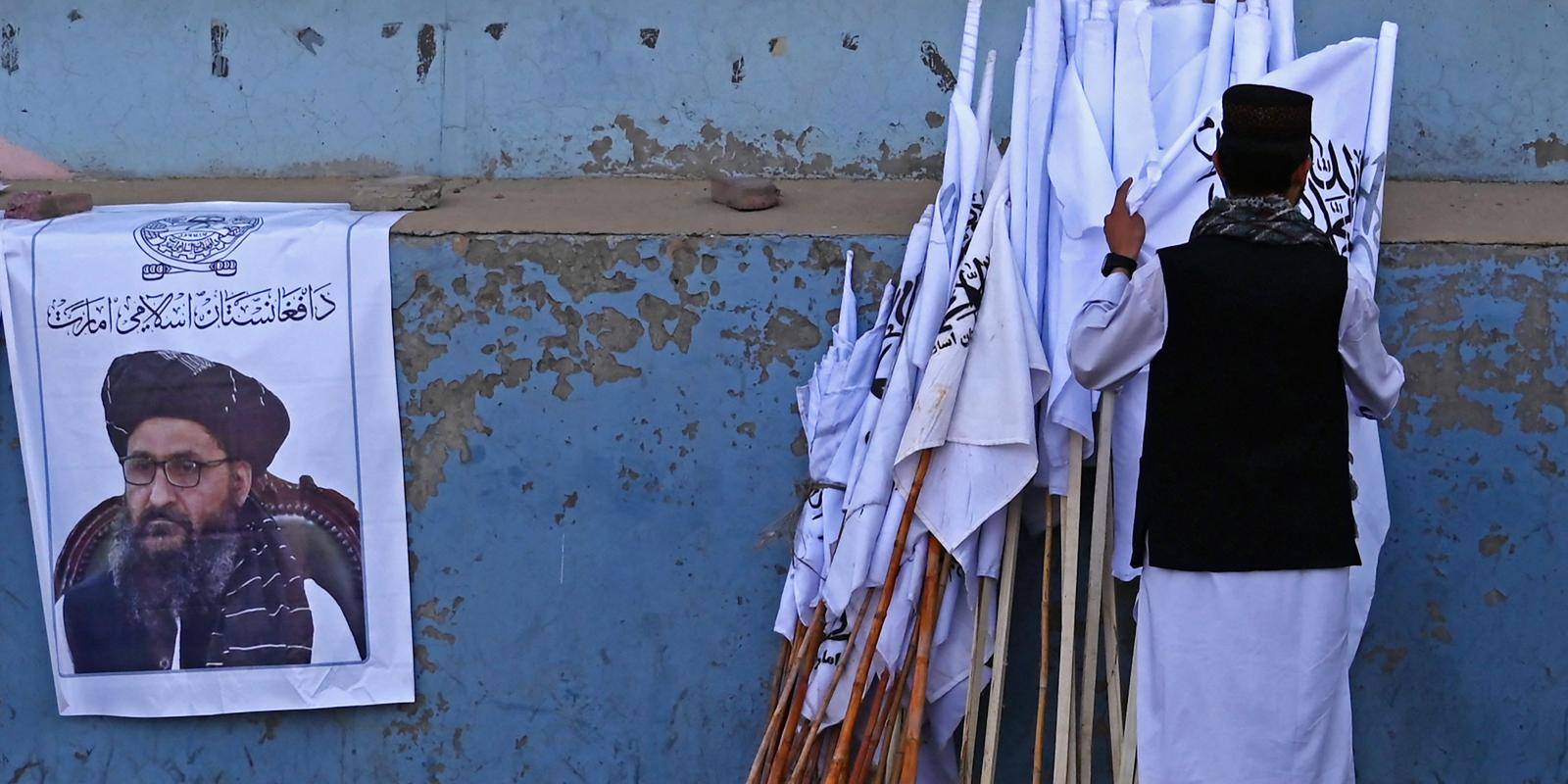
by Hamayun Khan 11 November 2021
Despite Pakistan dictating Afghanistan’s political fortunes under the Taliban’s rule, the Taliban can otherwise intercept Pakistan’s economic trespass. With the Taliban’s return to power, the volume of Afghanistan’s trade with Pakistan has surged, with Afghanistan exporting less and importing more. On the contrary, the volume of Afghanistan’s trade with India has decreased, resulting in a sharp decline in Afghanistan’s exports to India, including mostly dried fruits. This decline has also pushed up the price of Afghan dried fruits in India. The news reports indicate Indian traders bewildering about the price hike of Afghan dry fruits in India by as much as 30 to 70 percent. This shows how the Taliban’s return to power looms India-Pakistan’s politically driven rivalry into their economic rivalry in Afghanistan. This rivalry is going to be more feasible now, as the Taliban – a pro-Pakistan group, rules Kabul. Islamabad therefore aims at evolving an economic stranglehold, by leveraging its well-built political influence, in Kabul. Though touted being more politically influenced, the Taliban can hinder Pakistan’s economic influence through better strategic alternatives. However, Pakistan’s economic occupation of Afghanistan is possible in three key scenarios.
First, the Taliban’s willingness to adhere to a biased trade policy with Afghanistan’s major trade partners – especially India. This could pull up India-Pakistan’s economic rivalry that may inflict the already shaky Afghan economy, if not properly managed by the Taliban. The Taliban needs to leverage this rivalry for the country’s economic development, since both the countries strive to instill an economic influence in Afghanistan. However, this rivalry otherwise creates a scenario where Pakistan may have more influence due to its stalled control over the Taliban. This will also increase Afghanistan’s economic dependence on Pakistan.
One significant reason is Afghanistan’s lopsided trade with India and Pakistan. Afghanistan has a higher rate of imports from Pakistan than its exports. Afghanistan’s exports to Pakistan are worth $179.23 million as of 2020-21, which was $122 million in 2019. While, Afghanistan’s imports from Pakistan were worth $890 million in 2019, which rose to $983.29 million in 2020-21. Whereas the volume of Afghanistan’s exports to India in 2020-21 slots at $509 million, is higher than Afghanistan’s export to Pakistan. Although the import rate from India to Afghanistan is also higher which was worth $1,247 million in 2019 and dropped to $835 million in 2020-21. This infers Pakistan’s intent to shape its economic occupation, and perhaps this occupation may last for long if not proactively averted.
Second, If the Taliban allow Pakistani Rupee as a medium of exchange in the Pak-Afghan bilateral trade, or Rupee otherwise enters the Afghan market as a partially legal tender. This is a major concern following Pakistan’s decision of conventionalizing the Rupee as the de-facto currency for Pak-Afghan bilateral trade. Pakistan took this decision immediately after the Taliban’s takeover of Kabul on August 15 this year. While Pakistan’s Minister of Finance and Revenue Shaukat Tarin assured that such a decision had been made to help save Afghanistan’s dollar reserves. However, if turned into practice, this decision could increase the value of Rupee against Afghani. This being put into action, the demand for the Rupee in the Afghan market will likely rise – creating room for the Rupee to enter the Afghan market. As a result, the Rupee may again replace Afghani, and cause Afghani’s value fall – as was done back in the 1990s during the civil war followed by the Taliban’s rule.
Third, If the United States unfreeze Afghanistan’s dollar reserves sans proper financial management of the Afghan authorities and rigorous supervision of the international community. One reason is the lack of a technical staff and policy makers in the key public sectors. Since the collapse of the elected government in Kabul, tens of thousands of Afghans have fled the country including highly qualified professionals. Given this critical juncture, fund flow to Afghanistan will only favor Pakistan. Because under the Taliban’s rule, Pakistan plays a critical role in dictating the political and economic fortunes of Afghanistan. Besides, the Afghan markets has a huge volume of Pakistani products and Pakistan remains Afghanistan’s major trade partner. Thus, the flow of funds to Afghanistan will benefit Pakistani producers and exporters. Nonetheless, Afghanistan can inhibit Pakistan’s economic influence through three conceivable alternatives.
First, imposing tariffs and quotas based on a policy framework on goods imported from Pakistan. This is a timely alternative to confine the Afghan market for Pakistani products. Instead, Afghanistan could increase its trade partnership with India and China, mainly to balance the trade imbalance thus created by lowering the import rate from Pakistan. This way the Afghan domestic production will gain momentum, as consumers will start purchasing and consuming domestic products more. Alternatively, Afghanistan might focus on increasing imports from Afghanistan’s other trade partners and providing space for foreign direct investments and foreign aid-driven developmental projects.
Second, the creation of Job opportunities through mainstreaming entrepreneurship, focused on the private sector to emerge. Additionally, designing a framework to facilitate an unbiased trade policy with Afghanistan’s major trade partners. Finally, reduction of tariffs and resumption of trade with China and India via air corridor – earlier initiated by the previous government and thereafter halted after the Taliban’s takeover of the country.
Pakistan’s imminent economic influence over Afghanistan is a strategic choice for routing to the South Asian Market, and to evolve its indebted economy. Pakistan has already leveraged its location in convincing the international powers to financially help the country in its disguised fight against terrorism. However, Pakistan arbitrages its mysterious policy concerning Afghanistan to restore its troubled economy – in what routing to South Asia could be the paramount. Pakistan’s stalled political and economic influences are thought perilous for Afghanistan’s economic and political wellbeing.
